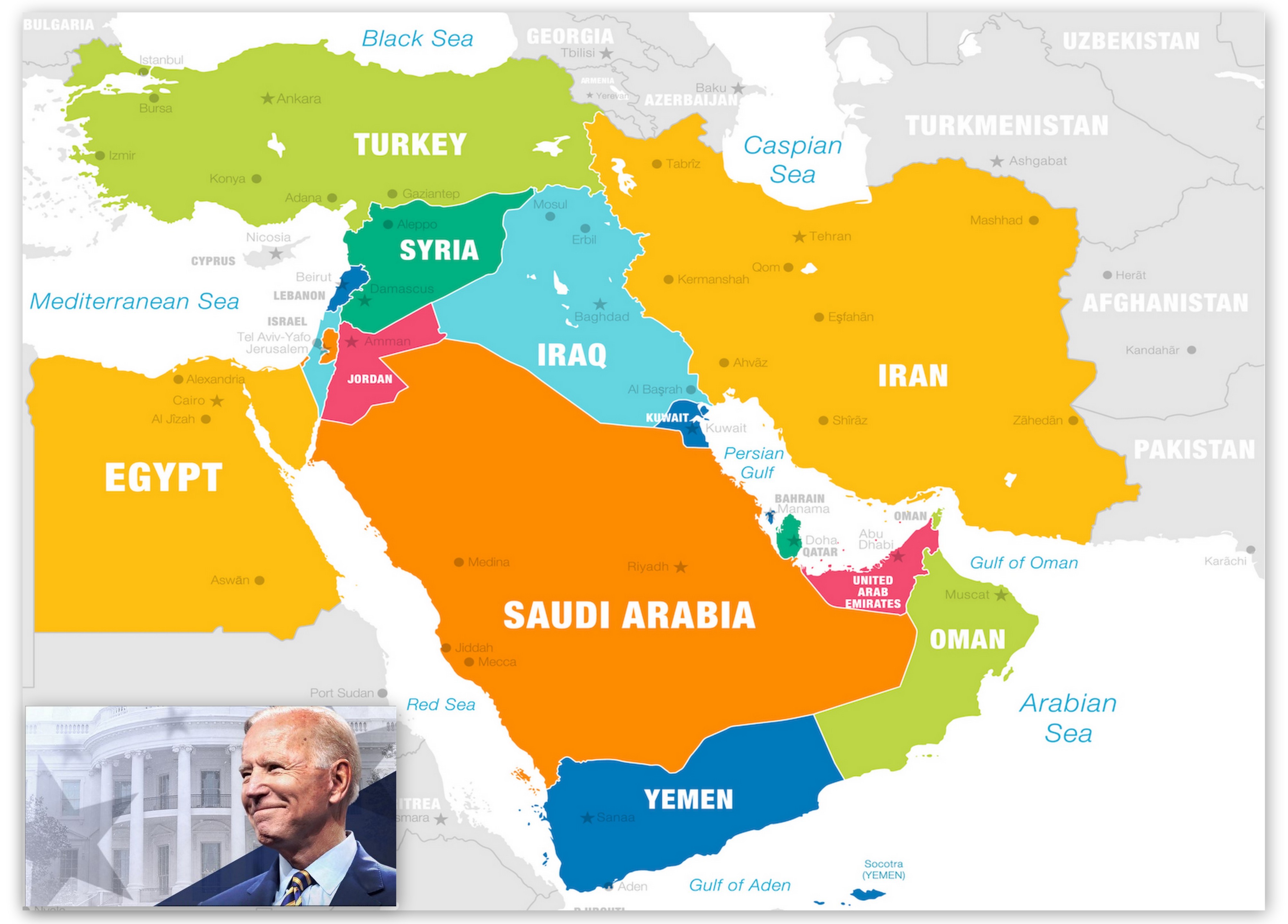In the aftermath of the US capitol storming, Trump became the first President in the history of the US to be impeached twice after the House of Representatives accused him of inciting violence based on false claim of election fraud. Though his trial remains to be completed in Senate, he will be replaced by Joe Biden on January 20, after inauguration. In this backdrop, some regional players in the Middle-East would miss him or rather his transactional attitude to international relations. In contrast to other Presidents of US, his approach has been identified as Trumpism by many scholars, who identify it by it’s chaotic nature and unpredictable ways. Many a times, his team at the Press meets would be caught off guard during his announcements which would take the world of diplomacy by storm.
Developments in Middle-East
Since the year 2011, the Middle East had seen a resurgence of the Political Islam. Over the past four years, the US had withdrawn itself from the theatre in the Middle-East, driven by an inward looking & deal-making approach of Trump. Israel had tied up with most of the Arab world. It had opened diplomatic relations with the UAE through the Abraham Accords. The Egypt and the Gulf Arabs are trying to be done with the Political Islam, while Russia is trying to increase its influence in the region due to the relative withdrawal of the US from the role of a mediator. Abu Dhabi’s Mohammed bin Zayed Al Nahyan had his own way in dealing with his rivals in the Middle-East. The Oil rich region of Marib in Yemen currently in the control of the Saudi-led coalition, is being looked on by the Houthis. The UAE has been pushing the Houthis from the South of Yemen. The civil war in Yemen has resulted in a hunger of catastrophic scale, but is providing leverage to Saudi-Arabia and the UAE, and with no interference from US, it stands to benefit the other regional players like UAE in terms of military stronghold.
Also Read: Link between Abraham Accords and Afghan Peace Process
Recep Tayyip Erdogan of Turkey got rid of the Kurds, who had helped in the defeat of ISIS, but was dumped by US under Trump and Turkey. The only involvement of the US in the region has been with respect to provision of arms.
Weapon-deals & the case of Khashoggi
In 2017, a $ 110 billion deal was sealed between the Saudi-Arabia and the US by the involvement of Jared Kushner, Trump’s son-in-law. As part of the Abraham Accords, the UAE had purchased $23 billion worth of advanced drones & F-35fighter jets from US. Apart from these, Trump had not allowed for justice efforts to investigate the death of the journalist Jamal Khashoggi at the Saudi consulate at Istanbul. That Khashoggi was opposed to and critical of the Saudi involvement in the Yemeni civil war is widely known. In November 2018, the CIA had concluded that the journalist was assassinated on the order of Mohammed Bin Salman, the King of Saudi Arabia. Even while, Turkey had criticized the attack on Khashoggi, Trump administration left the region in a chaos with each player including Turkey to fend for itself.
Other crises in the ME
The transactional nature of Trump has left Middle-east with new problems, with Russia, Turkey and UAE looking to increase influence over Africa. On a slightly brighter side, the Syrian Civil war came to an endpoint with a ceasefire deal between Turkey and Russia. But another impeding problem in the region is whether Lebanon or Iraq would go broke first.
In 2019, the public debt-to-gross domestic product of Lebanon was the third highest in the world and the unemployment stood at 25% with a nearly a third of the population living below the poverty line. In 2020, it was observed, that in Lebanon, the central bank was running a Ponzi scheme of sorts, by borrowing from the commercial banks at above the market interest rates in order to pay back its debt. Things have gone worse after the Beirut explosion. Oil & gas industry which was hugely hit by the pandemic forms an important source of Iraqi revenue. Currently, Iraq is finding it difficult to pay its bills or salaries. More problematic in the case of Iraq is that majority of its leaders are from the party backed by Iran, which had recently witnessed killing of its nuclear scientist, Mohsen Fakhrizadeh.
Also Read: Iranian Nuclear scientist assassinated-changing of Iran’s equation with West
All of this would definitely place the new administration in US at discomfort, especially after the chaos and confusion left in the Middle East. The exclusively transactional nature of Trump’s Presidency, which has given the players in Middle-East arms, ammunitions, and drones, at the cost of peace, has thrown the region into a simmering disorder which would be a testing ground for the foreign policy of the incoming President-Joe Biden.





